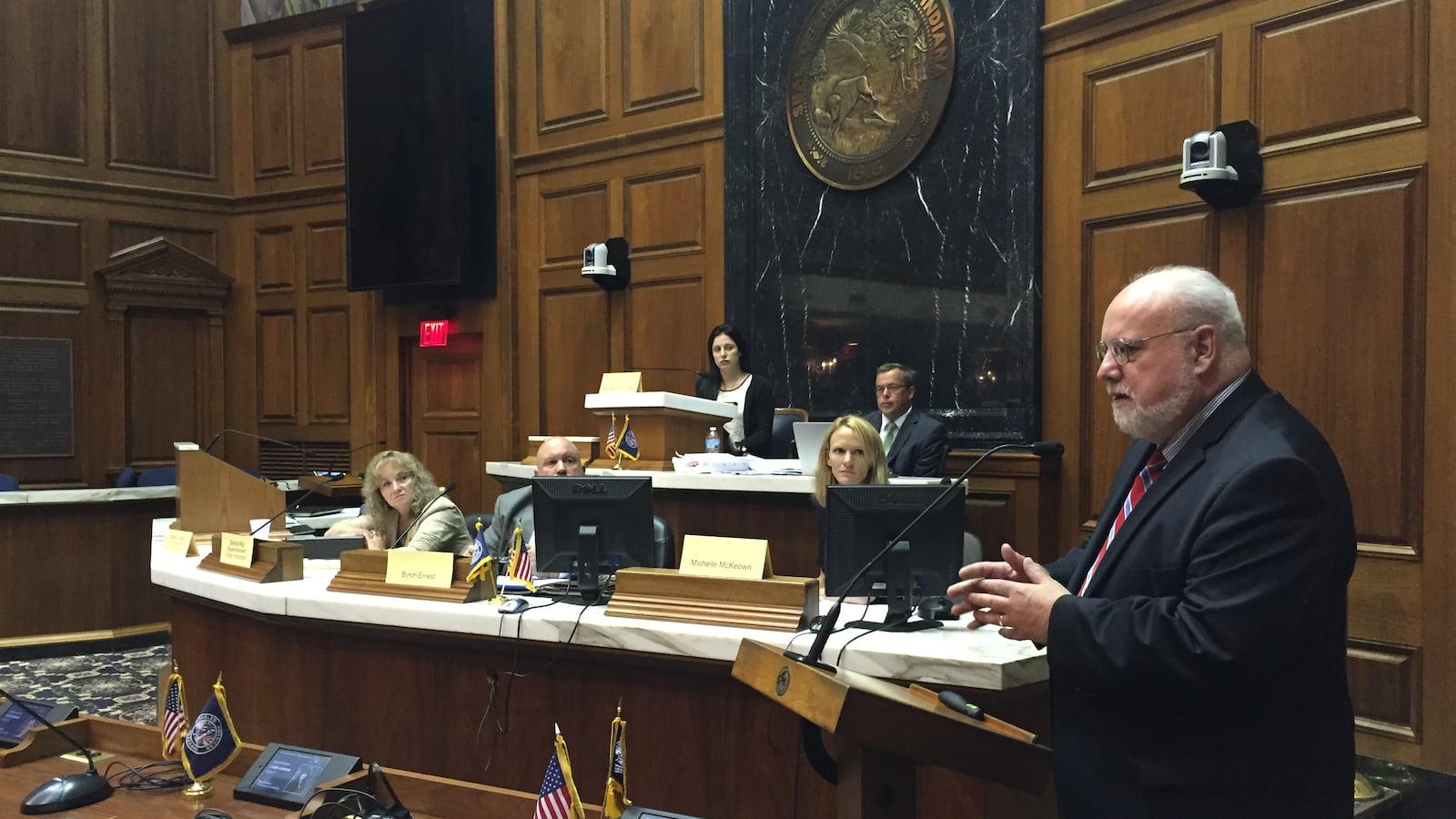After today, exactly 134 days remain until the panel charged with overhauling Indiana’s testing system must make recommendations. But after three meetings, no one can even agree on a broad vision for the test.
“I’m a little concerned, based on where we are today, that we’re never going to get to where we need to be in the time we have allotted,” said Rep. Bob Behning, who authored the bill that repealed ISTEP last spring.
That doesn’t bode well for the panel being able to fulfill its duties by the Dec. 1 deadline in state law. ISTEP officially expires after 2017, and a new test (or an extension of the state’s existing contract) will be needed for the spring of 2018.
Read: They rejected multi-state Common Core exams. Now what?
Because lawmakers set the deadline, and make the rules, they have much leeway to decide what happens if the committee fails at its task. It’s looking increasingly like one of those steps could be to keep ISTEP longer.
“The General Assembly created (ISTEP), the General Assembly repealed (ISTEP), so they can put it back in place, or put a successor in place,” Behning said. “It wouldn’t be bad if we said we need more time.”
The questions left to answer about the direction of the testing system are almost too numerous to list. They encompass concerns about online testing, how frequently tests should be given and what level of detail for student scores should be reported.
State Superintendent Glenda Ritz is lobbying for a “computer adaptive” test that adjusts the difficulty level of questions as kids get right or wrong answers. In her vision, the test would be given in parts throughout the year, culminating in a single score that could be used for state accountability.
“Kids are taking adaptive assessments all the time, and they seem to run quite well in their schools, and (teachers) seem to get the information they need,” Ritz said. “We need to be bold … and make it happen.”
But Behning and other policymakers argue that spreading out computer-heavy test could mean more state testing for students and require computing power that not all schools have. Behning said he supports a plan that would keep ISTEP, or something similar, for now while districts try out other kinds of tests to see what works.
It might cost more, he said, but it could lead to a better result in the long-run.
A bevy of test experts keep echoing the same refrain to the panel: One test can’t — and shouldn’t — be expected to do everything.
Ed Roeber, a former testing director for the state of Michigan who has consulted on testing for Indiana over the past year, suggested the state go with a simpler plan: Give a shorter ISTEP-like test once a year to meet federal requirements, then create tests teachers can use throughout the year that are aligned to state standards that aren’t used in state A-F grades. In high school, Indiana could use end-of-course exams and have kids take the SAT or ACT.
Finally, educators should be trained to have a better understanding of how all kinds of tests can work together to inform instruction, he argued. The point of state tests isn’t necessarily to guide teachers day-to-day, he said. Most of all, Roeber implored the panel to take their time to consider all the options.
“The important thing I think is not to rush into anything new,” Roeber said. “I don’t want to come back in a couple years when the next replacement is being talked about and we have this conversation all over again.”

